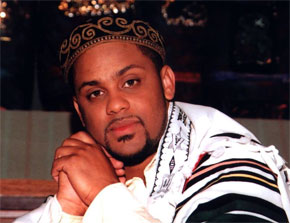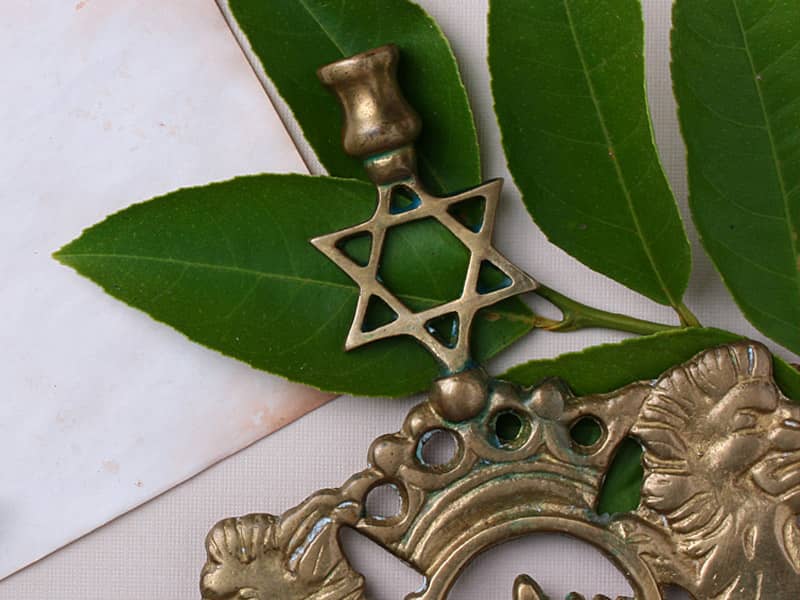
Joshua Nelson, 29, who calls himself the “Prince of Kosher Gospel,” was raised in East Orange, N.J. There he sought to bring together his love for his African heritage–his mother’s family, from Senegal, is Jewish–with his faith as an Orthodox Jew.
 |
Listen to "Adon Olam" |
Growing up black and Jewish wasn’t always easy for Nelson and his five siblings; they often had to explain who they were to Christians and Jews, blacks and whites. “Inside of my home with my parents, it was no problem because we were all Jews,” Nelson said. “But when we ventured outside of our houses it was different because people didn’t know we existed.” So how does Nelson blend Jewish observance with black-American culture? “We eat southern foods like collard greens and macaroni and cheese, they just are kosher,” Nelson said. “You wouldn’t find a pig in our collard greens. Everything is eaten according to Jewish law in the African-American soul tradition.”
 |
Listen to "Mi Chamocha" |
“There are lots of occurrences in the Torah about being in situations where God assisted,” Nelson said. “This is a double play, because black Americans shared the same slave history as ancient Hebrews, so they fit so well.”
Many of his fans say that Nelson’s voice bears a striking resemblance to the late gospel great Mahalia Jackson, who was known as the “Queen of Gospel.” Nelson says that he discovered Jackson’s music at the age of eight when he found an LP of her greatest hits at his grandmother’s house. She’s been his personal inspiration ever since. He considers himself the heir to her gospel legacy -hence his moniker, “The Prince of Kosher Gospel.” But the name originated in his black Hebrew synagogue, where the boys were called “princes.”
 |
Listen to "Adon Olam" |
Nelson now travels around the U.S. with his “Kosher” band–a bassist, pianist, drummer, and 10 gospel singers – half of whom are Jewish and half Christian. “My message is there are a lot of religions and denominations and it’s OK as long as we can get together and love each other and respect each other and respect each other’s religions,” said Nelson, who no longer affiliates with any one Jewish denomination. “We’re doing this through music.”
 |
Listen to "Mi Chamocha" |
“A little Christian boy said to me one day, ‘Do you guys read the Bible?’ And I said, ‘We wrote the book, baby.’ A lot of people don’t know that,” Nelson said.
Helping non-Jews to view Jews as caring people is another one of Nelson’s goals. He believes that doing so will heal social tensions and bring people together. In the process, Joshua Nelson has had some pretty remarkable experiences. At a concert in Palm Beach, Fla. last January, Nelson recounts, a paralyzed man arrived in a wheelchair. When the concert ended, the man’s female companion rushed up to Nelson and told him that during performance, the man had moved and started to clap his hands. “She was hysterical,” Nelson said. “Something happened that day. I think God has smiled down on us and smiled about what we’re doing.”

